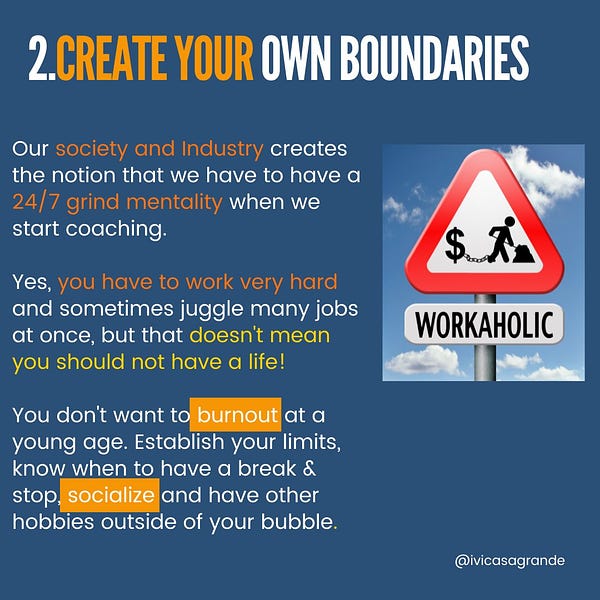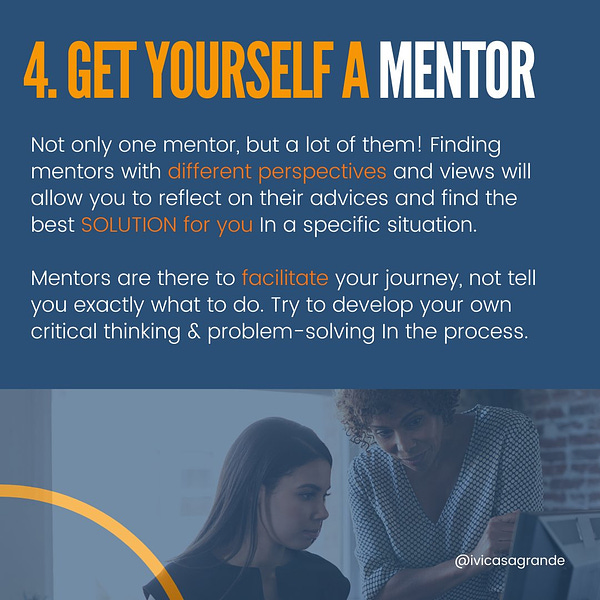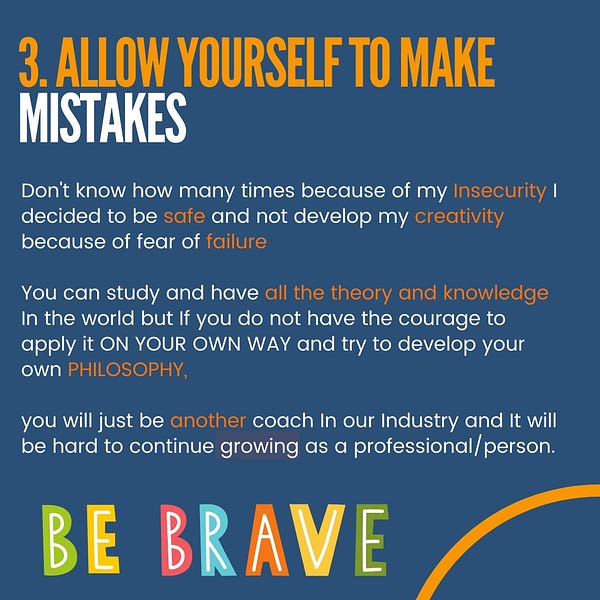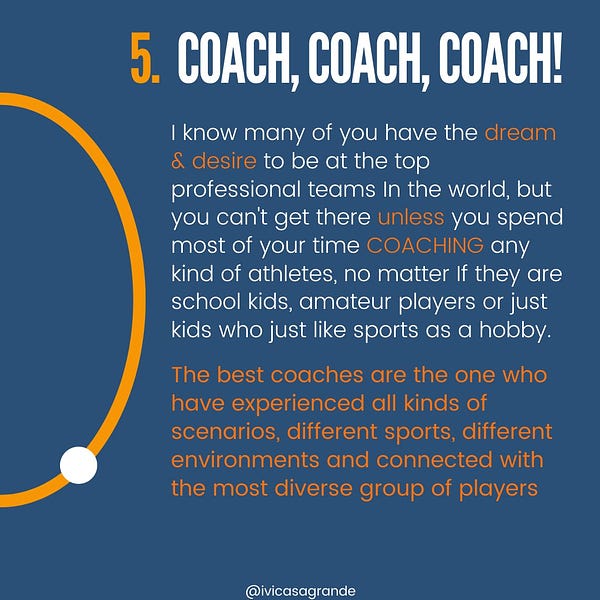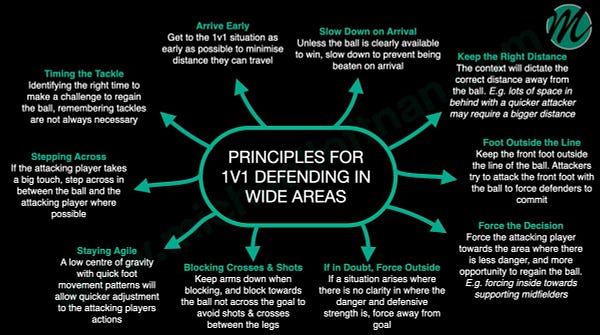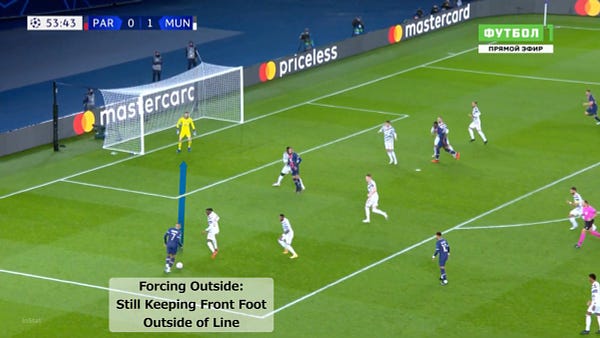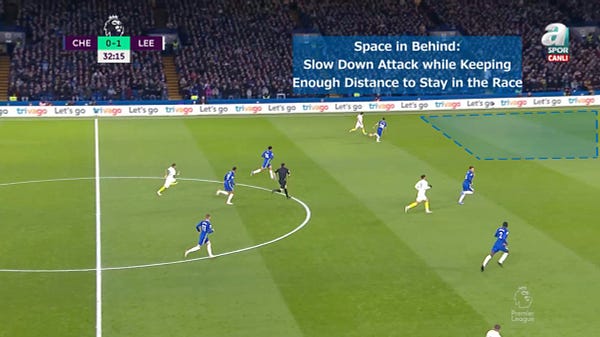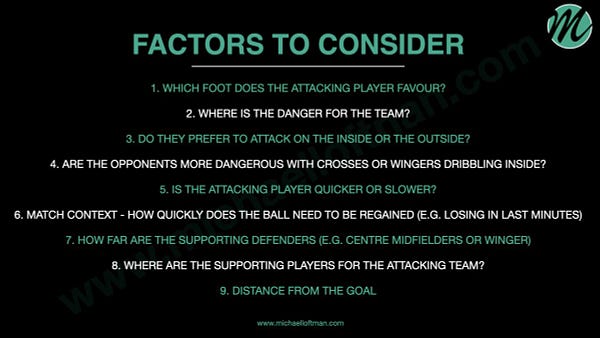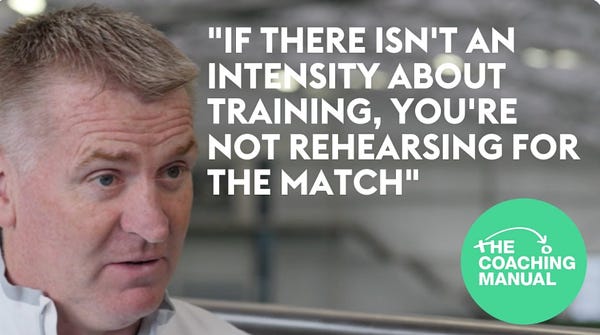Environements, overloads, and defending!
Hi Everyone, welcome to another edition of the coach insight newsletter. I came across this question from a Twitter user and it really got me thinking

When people question why do we not record results and tables for certain ages I always tell them, it’s because of the adults. their reaction to the result and the table is what causes issues rather than the players themselves. I’ve always said you will never take away the competitiveness in children/players. Look at siblings, when playing naturally competitive, so relax and don’t worry, kids don’t need a league table to compete, it’s natural for most of them.
The Top Ten
I came across this from Ivi Casagrande and whether you’re a new coach or an experienced one, a lot of these ring true. I highly recommend getting a mentor, again even if you’re experienced, having someone with more experience than you to lean on is invaluable. The English FA has done a great job in providing mentors with their coaching badges.
Although a lot of what Niels goes through is aimed at professionals, I think its themes can still be applied to any level coach or player. Whether that be thinking about the way you coach, to burn out, thinking about building players up mentally as well as physically after injury, to mental health. https://www.linkedin.com/pulse/psychologically-informed-environments-football-niels-feddersen
Want to help your players with 1v1 defending in wide areas? Well here’s a great thread from Michael Loftman explaining the key elements.
Another twitter thread, this time from Eric Laurie on creating overloads/numerical superiorities in the 3 phases in possession. Do you know the five types that are recognised in football?
I really like the points Tom Hartley makes in this thread on effective development environments. The point that stands out the most to me is “young athletes are not miniature adults” we definitely need to stop thinking of the game in the same way for the earlier phases than the adult phases. I’m a big believer and advocate for 3v3 at the foundation stage for example (stop the rush to bigger pitches games and even goalkeepers)
Looking to help your player’s decision-making when attacking, have a look at this combine to create drill from the FA. A simple but effective drill that’s perfect for the youth development phase.
Really interesting blog from Dan Smith on the England football learning site on the ever-evolving role of the Goalkeeper. you look at the best teams in football and their goalkeepers can pass and create as good as any CB. https://community.thefa.com/coaching/b/youth-club-football-blogs/posts/the-role-of-the-goalkeeper-in-possession-
Sport psychologist Dan Abrahams here on why the environment you create for your players is important. Have you thought about the environment you’re creating, the behavior you allow and don’t allow, how you present yourself, how you react to the parent’s influence etc. https://www.linkedin.com/posts/dan-abrahams-b72a306_the-environment-you-create-for-your-players-activity-6907604536337530880-wm6-/
Nice infographic from the coach manual team on developing game management skills in your players. What I lie about this is the flow, you could easily create this for other principles and even change the practice design but it gets your thinking in a systamic flow. https://app.thecoachingmanual.com/Content/17034
Finally a little snippet form the coaching manuals teams interview with current Norwich city boss Dean Smith on why he likes to have intensity in training. some good points. I personally like intensity during the actual exercises but then allowing the players a mental break in between. that way it eases the mental burden and allows then to focus even more. what about you?
Thanks again for joining. as ever if you know anyone who would love our newsletter use the share buttons below. Have a great weekend and week.





